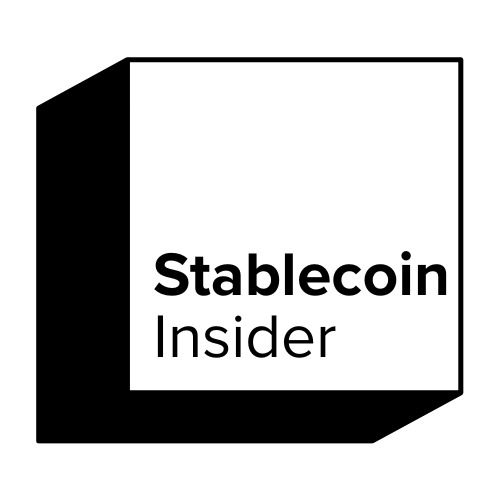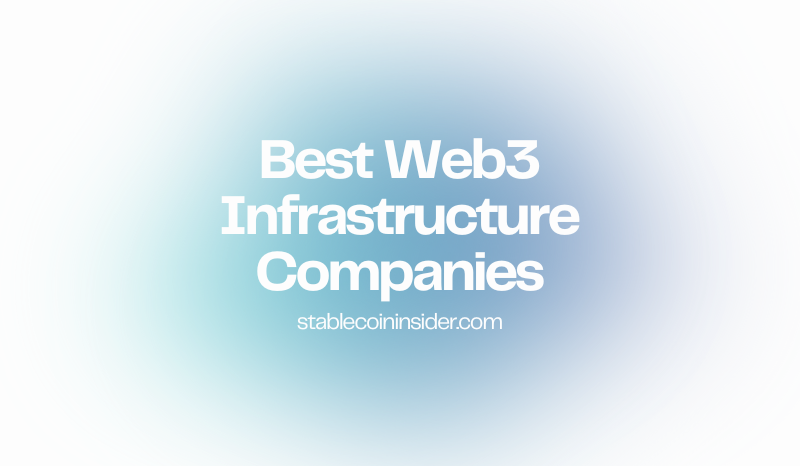Web3 infrastructure is the foundation that powers decentralized applications (dApps), blockchain protocols, and digital assets.
It includes the critical backend services and technologies needed for building, deploying, and scaling decentralized ecosystems—from node services and APIs to smart contract frameworks and cross-chain communication tools.
As more businesses and developers enter the Web3 space, reliable infrastructure is crucial for scalability, security, and user experience. In 2025, several companies are leading the charge, building robust platforms that abstract complexity and accelerate adoption.
This article explores the best Web3 infrastructure companies driving innovation today, organized by categories that matter most to developers and enterprises.
Key Takeaways
- Web3 infrastructure includes APIs, node access, smart contract dev tools, decentralized storage, oracles, and more.
- Alchemy, Infura, Chainlink, The Graph, and Polygon are some of the top names powering dApps.
- Trends like modular blockchains and account abstraction are shaping the future of Web3 infrastructure.
What Counts as Web3 Infrastructure?
Web3 infrastructure refers to all foundational systems that allow dApps and blockchains to operate. This includes:
- Node Providers: For blockchain connectivity and data access
- Blockchain APIs: Simplify on-chain interactions
- Indexing & Querying: Fast access to blockchain data
- Decentralized Storage: For files, media, and on-chain records
- Oracles: For real-world data and interoperability
- Smart Contract Tools: For secure and scalable development
- Wallet & Identity Infrastructure: For user authentication and key management
Top Categories of Web3 Infrastructure Companies
Node and API Providers
- Alchemy: Offers powerful APIs and developer tools for Ethereum, Polygon, Arbitrum, and more.
- Infura: Backed by ConsenSys, Infura provides scalable API access for Ethereum and IPFS.
- QuickNode: Known for multi-chain support and high-speed performance.
Oracles & Interoperability
- Chainlink: The leading decentralized oracle network, used for price feeds, weather data, and more.
- Wormhole: A cross-chain messaging protocol connecting Solana, Ethereum, and beyond.
- Axelar: General message-passing protocol supporting cross-chain smart contract execution.
Data and Indexing Services
- The Graph: An open-source indexing protocol for querying blockchain data using GraphQL.
- Covalent: Unified API for pulling detailed blockchain data from multiple chains.
- Flipside Crypto: Provides dashboards and analytics for Web3 ecosystems.
Storage and File Management
- IPFS / Filecoin: Protocol Labs’ suite for decentralized data storage.
- Arweave: Permanent, tamper-proof storage for dApps and NFTs.
- Crust Network: Supports Web3 cloud storage via IPFS and blockchain-based authorization.
Smart Contract Development Tools
- Hardhat: Popular Ethereum development environment with extensive testing and deployment tools.
- Foundry: A high-performance Rust-based framework for Ethereum development.
- Thirdweb: Simplifies smart contract deployment with pre-built templates and SDKs.
Wallet & Identity Solutions
- WalletConnect: Protocol for connecting dApps to mobile wallets securely.
- Privy: Focused on privacy-first onboarding and identity infrastructure.
- Web3Auth: Social login infrastructure that abstracts private key management.
Scaling and Layer 2 Infrastructure
- Polygon: Ethereum-compatible L2 with broad adoption and developer tools.
- Arbitrum: Optimistic rollup offering lower fees and scalability.
- zkSync: ZK-rollup-based Layer 2 focused on security and fast finality.
How These Infrastructure Companies Support Developers
The best Web3 infrastructure companies make it easy for developers to build quickly and securely:
- Developer Toolkits: Comprehensive SDKs and APIs
- Documentation & Guides: Easy onboarding for all experience levels
- Grant Programs: Financial support to launch open-source or ecosystem projects
- Open Source Repositories: Encouraging community collaboration and transparency
Notable Use Cases and Integrations
- Alchemy & Infura: Powering top Ethereum dApps, NFT marketplaces, and L2 networks.
- Chainlink: Providing DeFi protocols with accurate price data across hundreds of markets.
- Arbitrum & Polygon: Used in NFT mints, GameFi platforms, and DAO voting systems.
- Filecoin: Leveraged by decentralized video and storage platforms like Livepeer and Lighthouse.
Emerging Trends in Web3 Infrastructure
- Modular Blockchains: Separation of execution, consensus, and data layers (e.g., Celestia).
- Account Abstraction: Enabling smart contract wallets with flexible permissions and recovery.
- Zero-Knowledge (ZK) Infrastructure: Improving privacy and scalability with zk-rollups and proofs.
- Real-Time Analytics: Platforms like Flipside and Dune offering live, interactive blockchain insights.
- AI x Web3: Intelligent observability, contract auditing, and dev automation via AI tools.
Challenges Facing Web3 Infrastructure Companies
- Uptime & Reliability: Especially for real-time apps and financial protocols.
- Cross-Chain Risk: Smart contract exploits during bridging or oracle failures.
- Decentralization vs. Usability: Balancing control with ease-of-use.
- Sustainability: Long-term business models in open-source ecosystems.
The Future of Web3 Infrastructure
Web3 infrastructure is evolving fast:
- Interoperability will become default, reducing friction between chains.
- App-specific chains and rollups will grow to meet specific user needs.
- Enterprises will demand more compliance-ready infrastructure.
- Developer UX will drive tool adoption—simplicity will win.
Conclusion
From powering NFT marketplaces to securing DeFi protocols, the best Web3 infrastructure companies are playing a pivotal role in blockchain’s growth.
Whether you’re a solo developer or a global enterprise, your choice of infrastructure partners can determine your project’s performance, scalability, and user experience.
As we move deeper into 2025, infrastructure will remain the backbone of innovation in Web3.
Read Next:
FAQ
What is Web3 infrastructure?
Web3 infrastructure includes all backend systems and tools—like nodes, APIs, storage, and developer frameworks—that support decentralized apps and blockchain networks.
Which Web3 infrastructure company is best for developers?
Alchemy, Infura, and The Graph are highly regarded for reliability, documentation, and support.
Is Web3 infrastructure decentralized?
Some providers are decentralized (e.g., Filecoin, Arweave), while others offer centralized infrastructure with high availability (e.g., Infura).
Why is infrastructure important in Web3?
It ensures dApps function smoothly, securely, and at scale, without needing to build backend systems from scratch.
How can I choose a Web3 infrastructure provider?
Match your needs to the category—e.g., if you need storage, look at Arweave; for APIs, consider QuickNode or Alchemy; for oracles, Chainlink is a top choice.

